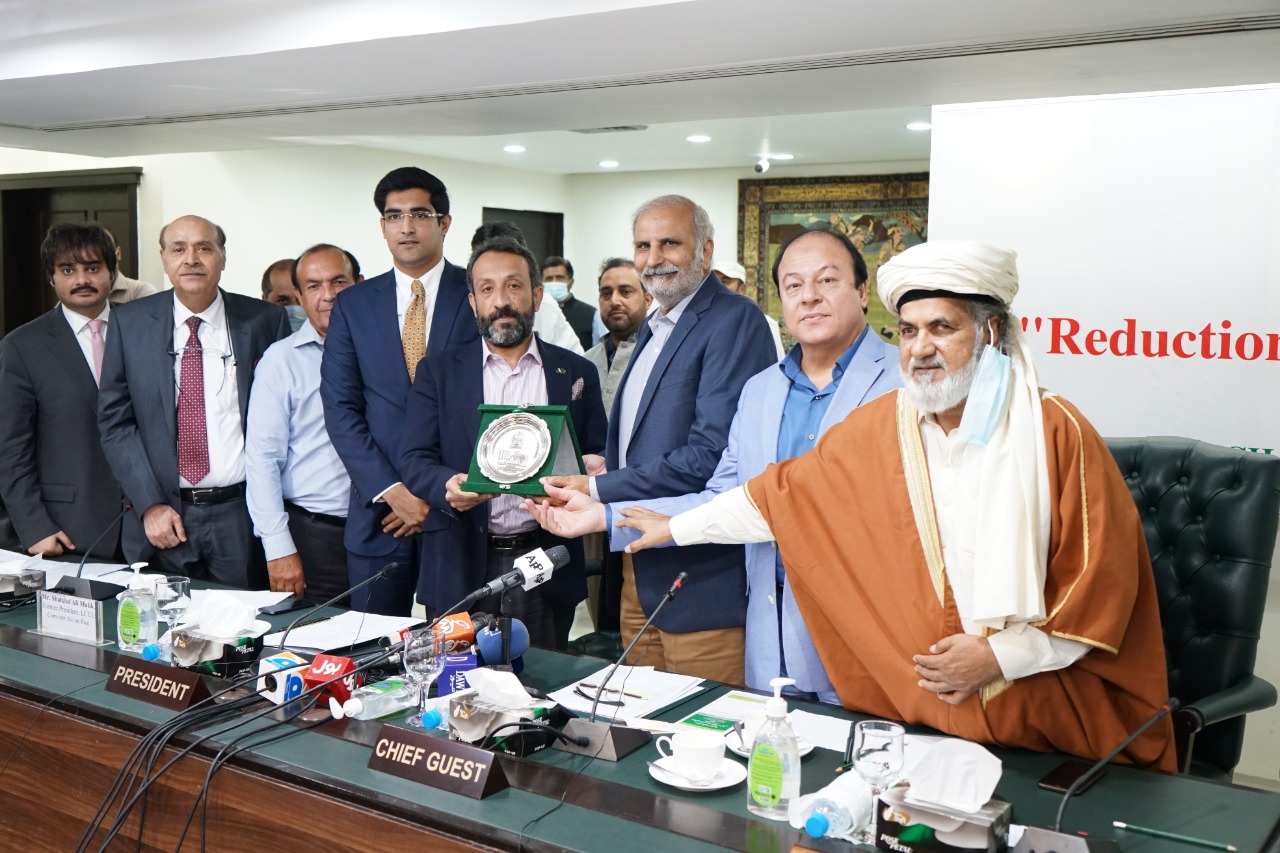
Lahore: During a seminar on “Minimum Residue Levels (MRL) in Rice Crop” at the Lahore Chamber of Commerce & Industry on Wednesday, experts said that the European Union has already issued an alert for Pakistan while 161 consignments of rice have been rejected by the European Union and USA due to high ratio of residue in rice crop.
Experts fear that Pakistan may face a ban on exports of rice to the European Union due to excessive use of pesticides.
They said that the growers do post-harvest sprays of pesticides, which is the main reason for the high ratio of residue level in rice crops. Only registered pesticides should be used for rice crops.
Provincial Minister for Agriculture Syed Hussain Jahaniya Gardezi was the Chief Guest while LCCI President Mian Tariq Misbah presided over the seminar.
Vice President Tahir Manzoor Chaudhry, Convener LCCI Standing Committee on Rice & Former LCCI President Shahzad Ali Malik, Pir Nazim Hussain Shah, Dr. Tauqir, Dr. Mubarak Ahmed, former LCCI Senior Vice President Ali Hussam Asghar, Senior Vice Chairman Rice Exporters Association of Pakistan Faisal Jahangir, President Kissan Ittehand Khalid Khokhar and Chairman Pakistan Crop Protection Association Saad Akbar spoke on the occasion.
The Minister said that Basmati Rice is our pride and its quality is the best in the world. He said that the developed world has set strict standards for food safety.
In 2017, Indian rice exports were banned due to non-compliance with the standards and the benefit was shifted to Pakistan.
The Minister said that the government is well aware of the issue of excessive use of pesticides. In 2018, a committee was constituted which formed parameters in this regard.
He said that there is a dire need to educate the farmers. He said that a state-of-the-art laboratory has been established at Kala Shah Kaku and the rice exports should avail this facility. He said that the government is taking measures to control the use of harmful chemicals on the rice crop.
LCCI President Mian Tariq Misbah said that traditionally, rice has been the number one food crop of Pakistan in terms of earning foreign exchange for the country.
He said that the importance of Rice in our exports can be judged from the fact that in 2019-20, the exports of Rice stood at 2.27 Billion Dollars (around 10% of our total exports in that year).
Even in the first eleven months of 2020-21, the exports of rice have surpassed 2 Billion Dollars.
The LCCI President said that considering the importance of rice, we have to take extra care of all the requirements of rice importers, especially in developed markets and European Union to maintain our regular share in the international market.
He said that the purpose of arranging this seminar is to sensitize all the stakeholders who are directly or indirectly involved in the production and exports of rice about Minimum Residue Level (MRL).
Mian Tariq Misbah underlined the need of focusing on the requirements of developed economies and the potential loss of export orders in case of non-compliance as these economies do not compromise on food safety measures at all.
LCCI Vice President Tahir Manzoor Chaudhry said that the agriculture sector is the backbone of the economy of Pakistan. He said that agriculture and economy are vital for each other. Development of the agriculture sector will bring economic stability.
Convener LCCI Standing Committee on Rice and former LCCI President Shahzad Ali Malik said that we need to be proactive as Western and European countries have further tightened the food safety measures.
Pakistan must further reduce Minimum Residue Levels (MRL) in rice crop otherwise we cannot maintain the exports of rice over 2 billion dollars.
The use of fertilizers, pesticides, insecticides and herbicides etc. has been on rise for the last couple of decades.
In our market, there are national and multinational companies which are selling these chemicals. Since our farmers or growers are sensitive to price, they hardly bother to know about the hazards of using cheaper and inferior chemicals on their crops.
He said that we need to educate the growers to be smart while using the amount of pesticides and at the same time, we also need to make the manufacturers and suppliers aware of the worst effects of substandard chemicals on the final crop.